NEB ambition
The ultimate ambition of the New European Bauhaus is to achieve transformation. To do this, the NEB Compass has identified specific levels of ambition that outline the desired outcomes for each of the NEB values.
The ultimate ambition of the New European Bauhaus is to achieve transformation. To do this, the NEB Compass has identified specific levels of ambition that outline the desired outcomes for each of the NEB values.
These areas refer to the five key domains of intervention that CrAFt's New European Bauhaus Impact Model considers essential for guiding and evaluating complex urban initiatives.
The participation level refers to the degree or extent to which individuals or groups are actively involved or engaged in a particular activity, project, or process. It assesses the depth of their involvement, contributions, and commitment, ranging from minimal or passive participation to active and dedicated participation.
The New European Bauhaus (NEB) aims to promote the values of sustainability, aesthetics, and inclusion in the design and transformation of urban spaces. It emphasises the integration of environmental, social, and economic considerations to create harmonious and innovative living environments.
According to the Smart City Guidance Package, there are seven stages to plan and implement smart city projects. These stages propose a logical and coherent roadmap for city initiatives involving many stakeholders.
Noemí Julián was born in Zaragoza, Spain. She studied architecture in her hometown and completed her studies with an Erasmus in Milan, Italy. During her time in Milan, she studied subjects like urban sociology and heritage preservation. She realised her passion was not in constructing buildings but in understanding the social dynamics of urban spaces.
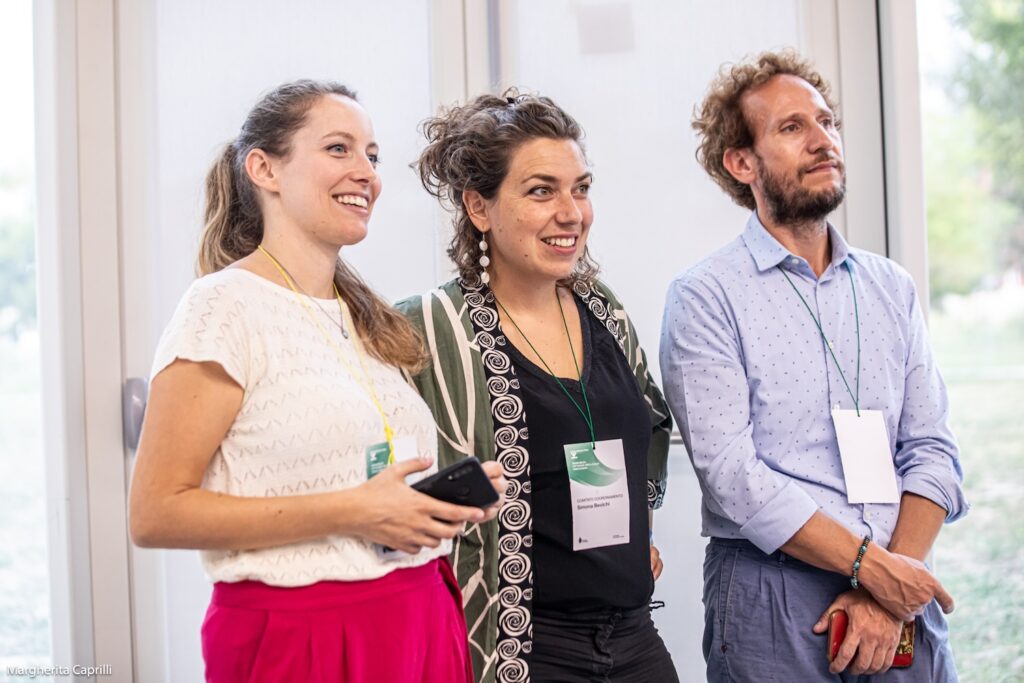
She later pursued a master’s programme in urban regeneration and social innovation in Venice, which opened her eyes to the possibilities around these topics. Venice was a game-changer for her. Being surrounded by like-minded individuals and hearing inspiring stories of urban renewal projects really motivated Noemí to pursue a career in the social aspects of urbanism rather than traditional architecture.
Since 2019, Noemí has worked as a project manager at the Fondazione per l’Innovazione Urbana Rusconi Ghigi (FIU) in Bologna, Italy. FIU is a multidisciplinary urban regeneration research, development, co-production and communication centre working to build the city of the future. The Foundation aims to foster city transformation processes in policy planning, civic governance, and design terms.
In her role at FIU, Noemí manages projects related to sustainable mobility, public spaces, and citizen engagement. The main project she is currently working on is Bologna’s Climate Citizens’ Assembly, which aims to empower communities to take ownership of their urban environment and participate in decision-making processes for an environmentally sustainable Bologna.
Bologna is one of the 100 European cities chosen for the “100 Cities for Zero Climate Impact by 2030 – for and by citizens” mission. This commitment entails the Municipality of Bologna promoting actions to accelerate the reduction of climate-changing emissions by constructing a Climate Citizen Contract in collaboration with public and private entities within the city and its citizens.
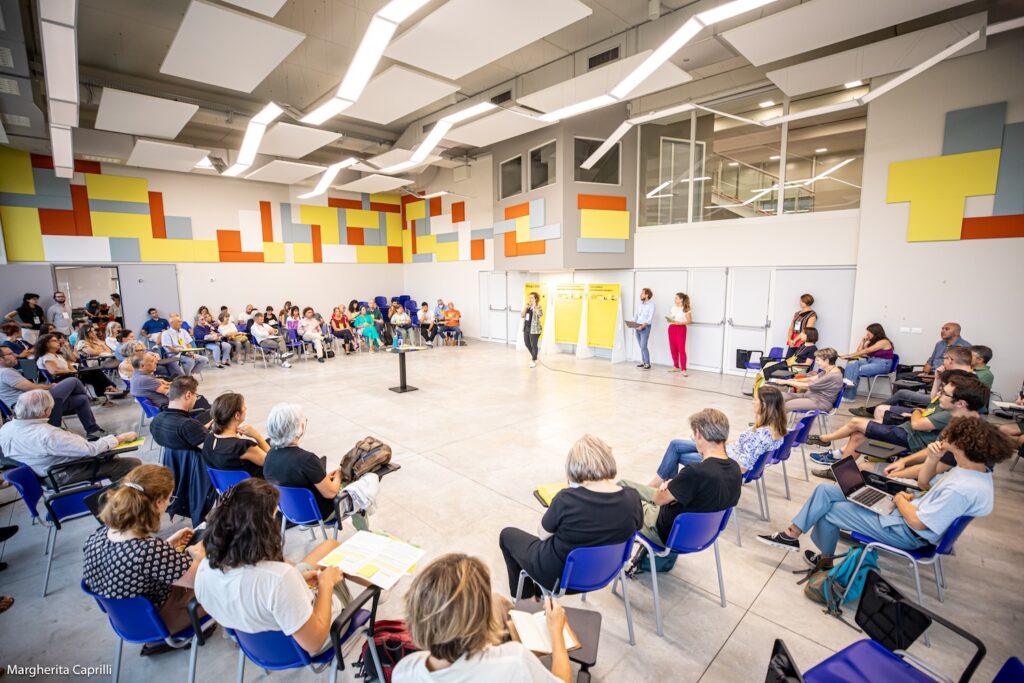
The Climate Citizens’ Assembly originated in Bologna’s declaration of ecological and climate emergency on 30 September 2019. The city responded with action, initiating a negotiation path with stakeholders in 2021 to address the pressing issue of climate change in a city characterised by a mediaeval urban layout and a rich architectural heritage, such as the porticoes and towers. This process culminated in December 2022 with the approval and establishment of the Citizens’ Assembly. The Assembly’s meetings took place from May to November 2023.
The Assembly comprised 100 citizens randomly selected from diverse backgrounds, using a statistical selection method to ensure a broad representation of the city’s population. From pupils to retirees, every demographic is accounted for. The selection process was meticulous, with stratified sampling ensuring proportional representation from different neighbourhoods, genders, occupations and nationalities. Eighty percent of the participants reside in Bologna. At the same time, the remaining 20% are “city users,” living outside the city and reliant on public transport for access.
FIU, in collaboration with the Municipality, played a pivotal role in facilitating the Assembly, from organising meetings to providing logistical support and community management.
“But the Assembly’s management is no simple task,” Noemí states. The process is overseen by a complex governance structure involving multiple bodies, including a Coordination Committee responsible for overall management, a Support Committee ensuring expert guidance, a Guarantee Committee ensuring transparency, and finally, a Monitoring Committee comprising Assembly members.
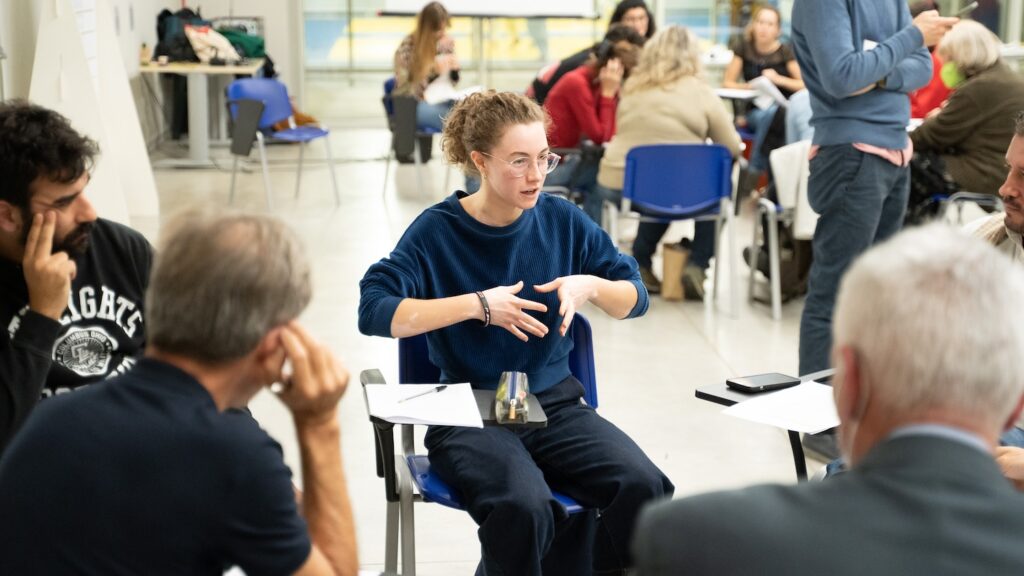
The Assembly gathered on nine occasions throughout 6 months. The series of meetings was restructured and facilitated by professionals. The initial two sessions were devoted to educating the participants about climate and urban issues. The following two encounters sought to elicit the participants’ perspectives on various subjects. The following four gatherings were focused on deliberation, with the final one dedicated to reaching decisions on proposals for the Municipality. The attendance at the meetings averaged over 80%.
The commitment required of the people selected was to participate in at least 70% of the meetings and to contribute to the group discussion in a collaborative manner. Various forms of support were provided for the members of the Assembly, including an attendance fee per meeting, a meal and baby-sitting service.
The Citizens’ Assembly worked on measures to transform Bologna into a climate-neutral city with a focus on three main issues:
The Assembly’s discussions reflected the diverse perspectives of its members, ranging from young enthusiasts to seasoned individuals with a wealth of experience. Their deliberations were about finding common ground, understanding each other’s viewpoints, and finding ways to bridge the gaps.
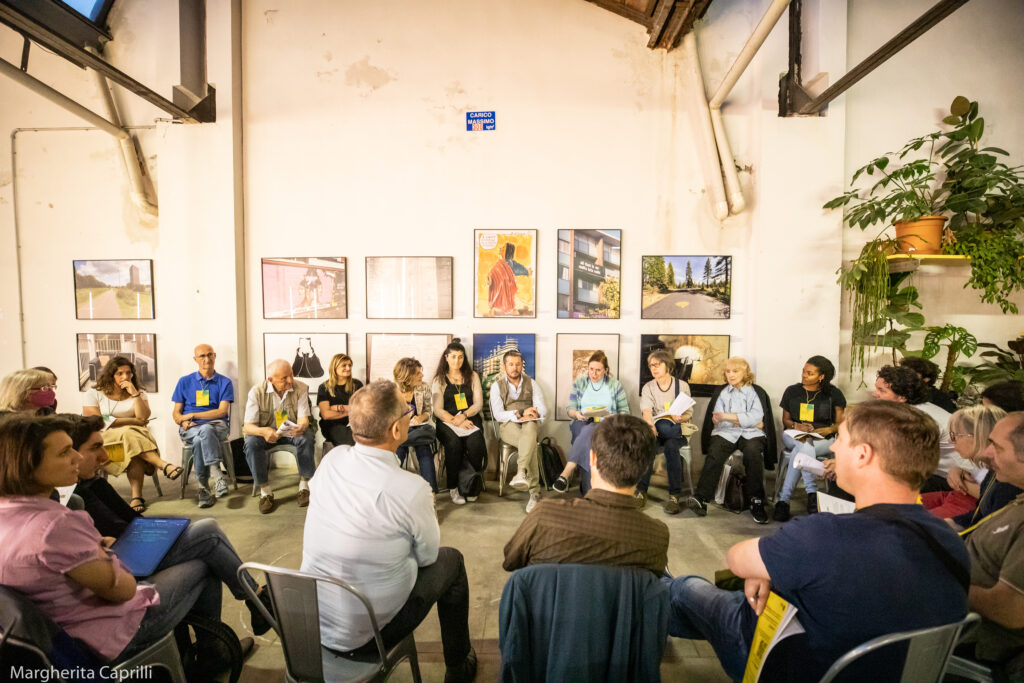
As the proposals were debated, it became apparent that each recommendation carried its own weight and implications, touching on various aspects of urban life and sustainability. Each proposal aimed to address pressing issues facing the city, from renewable energy to waste reduction, from green infrastructure to sustainable mobility.
However, the road to consensus was only sometimes smooth. Debates raged concerning controversial topics like public transportation, cycle lanes and parking lots. Some advocated radical changes, while others preferred a more cautious approach, emphasising the need to consider practicalities and potential repercussions.
Yet, despite the differences in opinion, the members of the Assembly recognised the importance of compromise and collaboration. They understood that meaningful progress could only be achieved through collective effort and mutual understanding. Slowly but surely, they worked towards finding common ground, refining the proposals, and ultimately reaching a consensus.
The six recommendations made by the Citizens’ Assembly to the Municipality of Bologna were:
After the nine sessions, many of the participants felt so excited about the process that they decided to establish an association to continue working. On its end, the Municipal Council had to examine, evaluate, debate and finally express its opinion on the proposals and recommendations formulated by the Assembly within four months of the conclusion of the sessions. Subsequently, the councillors of the Municipality of Bologna voted on the resolution to approve the results of the Assembly during the Municipal Council meeting on Monday 26 February 2024.
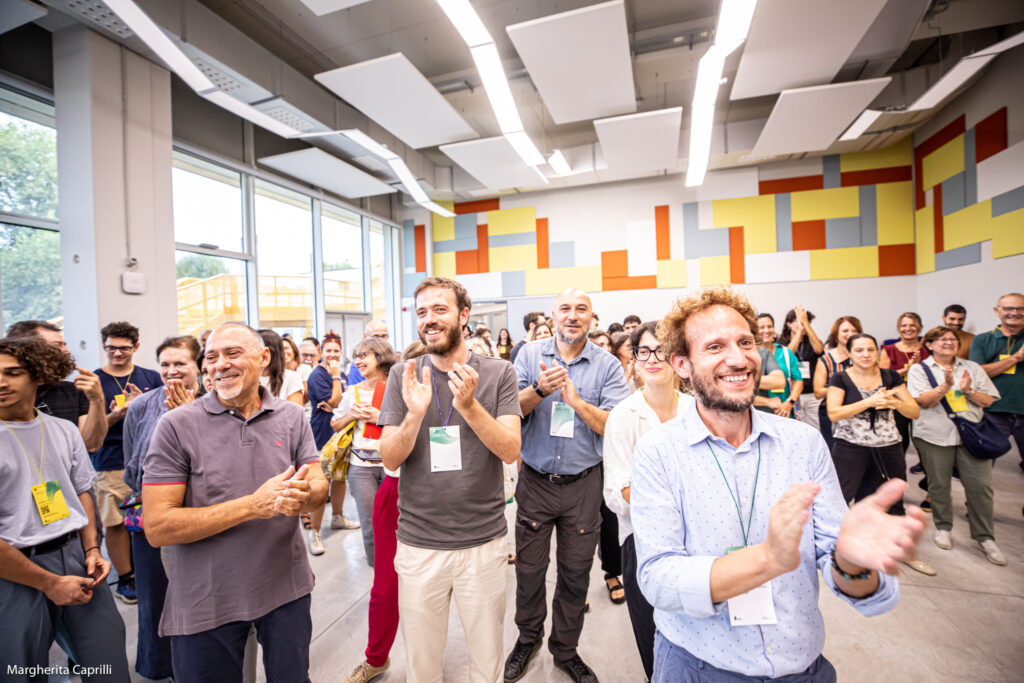
The Municipality’s existing plans on climate neutrality were, therefore, validated and refined by the proposals generated through the Assembly, with some priorities shifted or added.
When discussing the impact of the Citizens’ Assembly on the city of Bologna, Noemí shared that the project has activated previously inactive citizens, turning them into active participants in community initiatives. She hopes these individuals will continue to engage with their families and friends, spreading awareness and sensitising others to the issues addressed by the project.
Finally, Noemí believes that this initiative will contribute to a more sustainable and community-focused Bologna in the future, and she emphasises concepts like sustainable housing, renewable energy, green spaces, and sustainable mobility as part of the Assembly’s vision for Bologna to become a collective movement toward a more eco-sustainable future.
Find out more about Bologna’s Climate Citizens’ Assembly:
Written by Jose Rodriguez
Photos by Margherita Caprilli